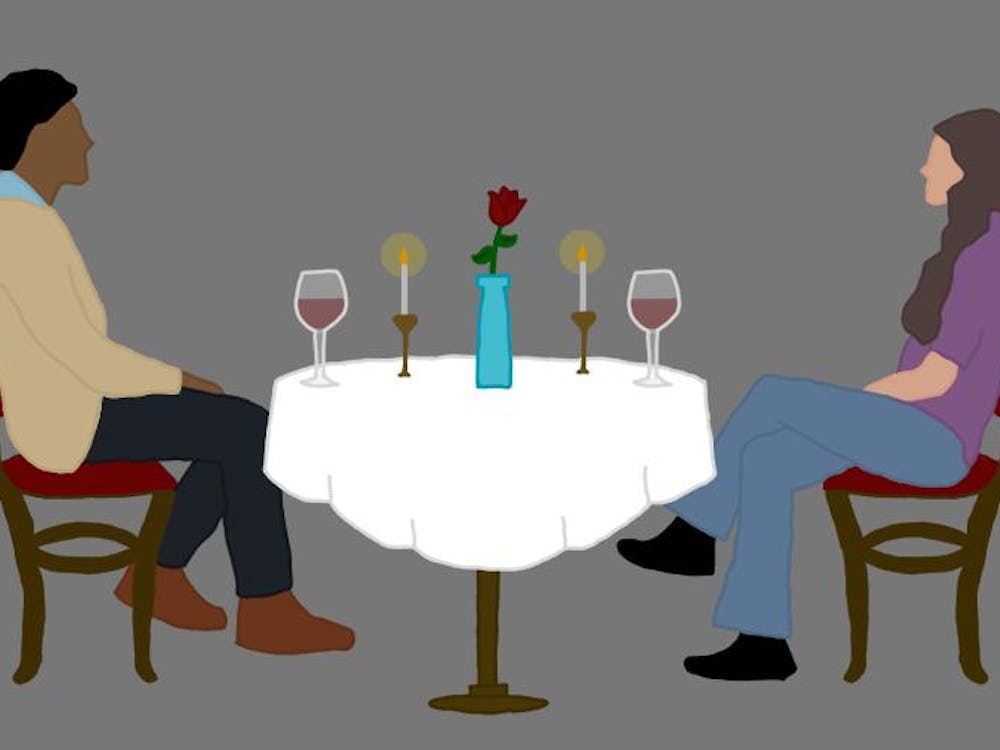It is called the silent killer. It is something that affects students at the University every day. It often goes unnoticed or unreported: depression.
"When you look at all initial diagnoses we provided last year, one-third of them were for some form of depressive disorder," said Russ Federman, director of Counseling and Psychological Services at the University. "Half of that one-third represented major depressive disorders. Major depression is a more serious type of mental disorder where you see more suicide attempts. These cases also tend to be recurrent."
Federman said in a recent study conducted by the American College Health Association, 46 percent of students said at least once they had become so depressed that it was difficult to function.
"When you look at a large sample like this, that in itself makes it clear that depression is a real problem affecting universities," Federman said.
College third-year student Felipe Cabezas is currently working to establish a CIO that deals with depression awareness.
Many might say college contains the best years of one's life, so why is depression so prevalent at the University?
"The university years are some of the most difficult years in one's progression," Federman said. "The multiple pressures that students are under are enormous especially at high achieving institutions like U.Va. Most students coming in have never received anything less than an A. They encounter the workload at U.Va. and they struggle. They interpret getting Bs and Cs as failure."
Grades and academic achievement are not the only factors that lead to student depression.
"It could be just about anything," Federman said. "It could be, 'I just broke up with my boyfriend or girlfriend,' 'I feel overwhelmed,' 'I miss home' or 'My friend just died in a car accident.' There is no typical reason for why someone is depressed."
Depression is an important issue facing the University community and some students, like third-year College student Felipe Cabezas, feel the University does not adequately respond to it.
The University "makes it a taboo subject," Cabezas said. "It is irresponsible of them to not do more."
Federman agreed with Cabezas in that more could be done.
"I think we do enough, but we could do more -- ideally, we could do a lot more," Federman said. "Our staff is often so consumed with providing treatment that we don't have a lot of resources left over to put significant effort into outreach and education. I think we do it at a small fraction of what we could do."
Despite these shortfalls, Federman said he feels the University provides great resources for students facing depression.
"When you look at other mental health institutions at other universities, we are very well-off," Federman said. "Most students who call don't have to wait for more than seven to 10 days for an appointment."
Federman said CAPS provides "round the clock services" to students, with walk-in hours every day.
"Right now we have 60 hours a week of psychiatry and in the future we hope to increase that to 80 hours," Federman said.
Cabezas acknowledged these are great resources, but still feels that more could be done.
"CAPS is good, but there needs to be more student-based initiative," he said.
Cabezas hopes his CIO will address some of these problems.
"I have two goals for the group," Cabezas said. "I want to further educate the student body about depression and encourage the University to offer more resources."
Cabezas said he hopes to have everything ready to launch the group next year.
Whether or not the University offers enough resources for student depression, Federman said the most important thing that can be done to stop it is to report it.
"I feel that we see increasing numbers of students coming forward each year, but not enough students do," Federman said.
But, as Cabezas noted, coming forward with depression is often easier said than done.
"People who are depressed put on a façade and to strip that off is scary," Cabezas said. "It takes a lot of courage to put yourself out there like that."
Societal response to depression also plays a role in preventing students to admit that they're depressed, Federman said.
"In our society, we still assess depression as representative of some inner weakness," he said. "We're not yet at that place where we look at psychological conditions as the same as physical conditions."
Since there are so many external factors that keep students with depression quiet, sometimes it takes another person to bring it into the open. However, many students facing this dilemma don't know where to turn.
"I think the resources for something like this are readily available and made very clear during your first year," third-year Architecture student Deri Bush said. "But it becomes more unclear as an upperclassman. If I had a friend who I thought was depressed I honestly wouldn't know what to do."
Federman shed some light on the subject.
"If you think that someone you know may be depressed, you should approach that person openly and directly with your concerns," Federman said. "This is not something that you should avoid."
CAPS provides several resources for students who want their friends to get help.
"Students can always come see us for a consultation, even if they don't need to make an appointment for themselves," Federman said. "We frequently talk to students with those issues. We are readily available to help students help their cohorts."
If depression is not caught in its earlier stages, it may lead to more grave consequences, most notably, suicide. In a recent study by the American College Health Association, 10 percent of students who said they were depressed admitted they had seriously considered committing suicide at least once in the past year. One and a half percent of these students acknowledged that they had tried to commit suicide.
"If you take that 1.5 percent and apply it to a school of the University's size, you see roughly 275 suicide attempts a year," Federman said.
While this statistic is somewhat alarming, Federman was happy to report that the suicide rate at the University is much lower than expected.
"The expected suicide rate for a university this large is about one and a half to two people per year," Federman said. "We've only had three suicides of enrolled students over the past six years, which is one-third of that expected level. As a university, we have done well."
Depression and suicide are major issues at the University, but that doesn't mean they always will be.
"If U.Va. can become a community where we can talk about depression, not only would we help a lot of people, but it would make the community stronger," Cabezas said. "Nobody should be suffering silently."






